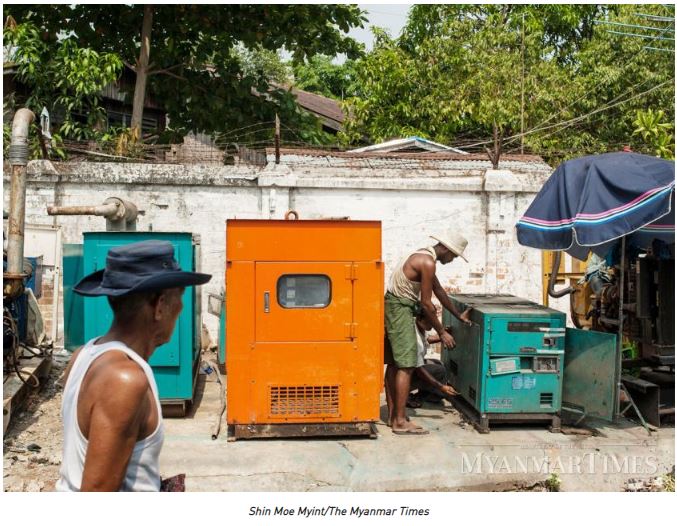Myanmar: Higher tariffs still welcome if power supply is regular, investors say
Despite higher electricity prices, if businesses are able to enjoy a regular, uninterrupted supply of power, the move is still welcome as most will still be commercially viable, some investors said.
“In the last year alone, blackout time in our factory was over 300 hours. When the power is out, we have to run the factory by using diesel-powered generators, which drives up costs substantially,” said U Myint Soe, chair of Myanmar Garment Manufacturers Association.
He added that businesses need not worry about additional electricity costs if the power supply is regular. “Based on a one-year projection of electricity costs under the new tariffs and if supply is regular and stable, our industry can make a profit,” he said.
To save more costs, more power saving equipment can be deployed and measures taken to establishing a more disciplined used of electricity, he said.
U Ko Lay, central executive member of Myanmar Industries Association, said: “We have been expecting tariffs to rise for the past three to four years and have concluded that the higher costs can be offset by regular supply of power. This would help us regulate production and reduce the cost of maintenance and repairing damaged machinery due to frequent power surges.”
In fact, U Ko Lay is expecting the power generation industry to become more competitive with more private investors entering the sector now that tariffs have been increased. “With more competition, prices could drop and factories could have more options to purchase electricity at reasonable prices,” he said.
Under the new rates, residential households and religious buildings will continue to pay the previous rate of K35 per unit, but only for up to 30 units. Consumers will be charged K50 for 31-50 units, K70 for 51-75, K90 for 76-100, K110 for 101-150, K120 for 151-200, and K125 for over 201. Consumers who used to pay K3500 for 100 units will now pay K6050, a 72.9 percent increase. This excludes service fees.
Business consumers, including companies, factories, government buildings, embassies, and international organisations, will pay K125 per unit up to 500 units, increasing by K10 for 50,001-100,000 units. K180 per unit will be charged for over 100,000 units.
Before the tariff hike, which took effect on July 1, the government had been supplying electricity to the public at a loss of K507 billion in the 2017-18 fiscal year and losses rose to K630 billion in 2018-19, according to data from the Ministry of Planning and Finance.
Source: https://www.mmtimes.com/news/higher-tariffs-still-welcome-if-power-supply-regular-investors-say.html


 English
English




